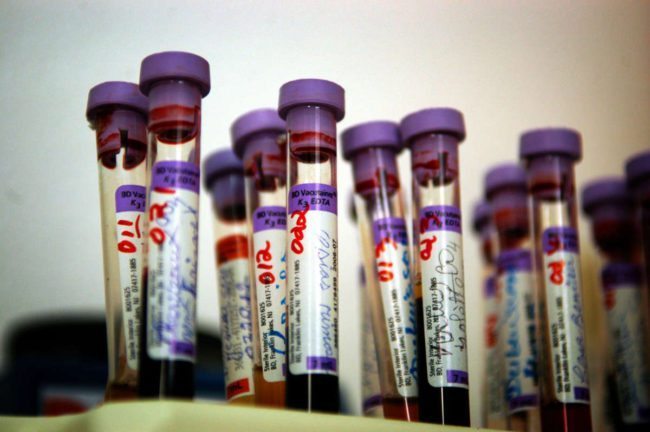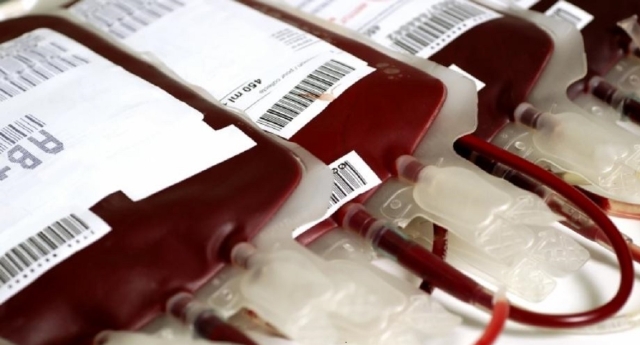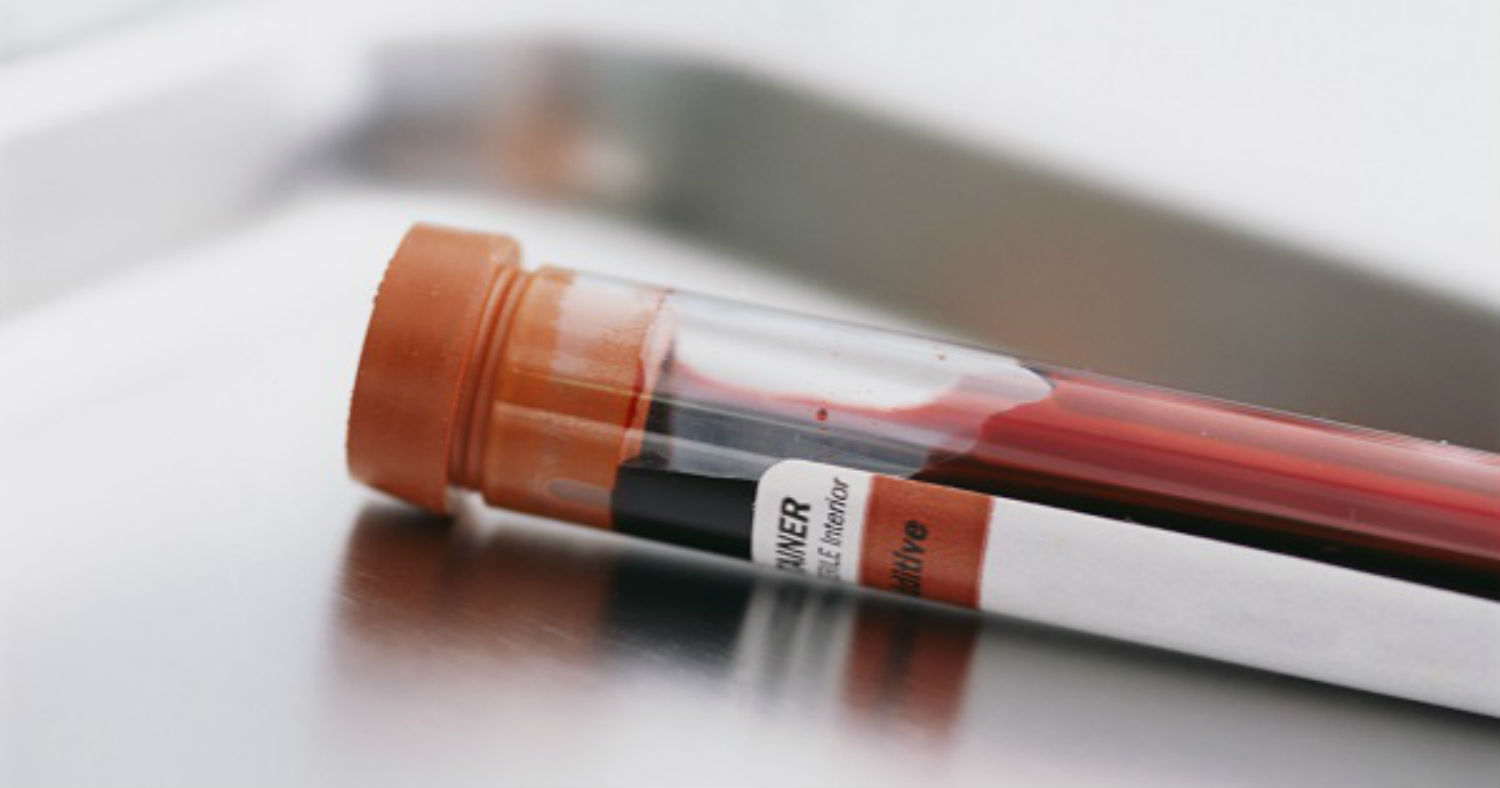It’s now much easier for gay and bisexual men to give blood

From this week it will be easier for gay and bisexual men to donate blood in England, Scotland and Wales.
Until now, blood donation rules across the UK banned men who have sex with men from giving blood if they have been sexually active in the past 12 months, due to risk of HIV contamination.
However, changes were recommended earlier this year to reflect advances in screening technology.
New rules come into effect from this week, reducing the 12-month deferral period to just three months.

Blood test tubes (Getty)
This means that gay and bisexual men are now eligible to donate blood if they abstain from sex for just three months.
The changed rules have come into effect today (November 27) in Scotland and Wales, and will come into effect in England tomorrow (November 28).
Further changes are already being considered, with campaigners favouring a system that profiles based on individual risk, rather than categorising all sexually active gay men as inherently at-risk.
Ruth Hunt, Chief Executive Officer at Stonewall, said: “We’re pleased to see the Government and NHS Blood and Transplant Service respond to the Freedom to Donate campaign in such a promising way.
“Reducing the deferral period makes it easier for gay and bi men who want to donate blood and that’s an important step forward. However, there’s still work to do, as many gay and bi men will still be excluded from donating.
“To avoid this, we’d like to see the introduction of an individualised risk assessment of blood donors, which would allow more people to donate safely, regardless of their sexual orientation.
“We will continue to work with the Government and other organisations to create a fairer system for gay and bi men who want to donate blood.”

Scottish LGBTI equality charity, the Equality Network, has welcomed the new blood donation rules which they say will reduce, but not eliminate, the discrimination faced by gay and bisexual men.
Scott Cuthbertson, Development Manager, said, “We welcome that more gay and bisexual men will be eligible to donate blood from today.
“We hope many gay and bisexual men who are now able to donate, do so with their peers.
“These new rules are a welcome and significant step forward, we remain concerned, however, that for too many low risk gay and bisexual men these new rules are, in effect, a continued ban.”
He continued: “The blood service has committed to explore ways in which a more personalised risk assessment could be introduced.
“We look forward to continuing to work with both the blood service and the Advisory Committee on the Safety of Blood, Tissues and Organs (SaBTO) to eliminate all unwarranted discrimination from the UKs blood donation rules.”
Ethan Spibey, founder of the campaign group FreedomToDonate, said: “Today marks a fundamental shift in blood donation policy recognising the contribution gay men and other groups make.
“For me, this was always about being able to repay the donors who saved my grandad’s life, and it’s great to see this change now taking effect in Scotland.””
The blood donation rules were changed after the UK, Scottish and Welsh Governments instructed their respective blood services to implement the recommendations of a recent review of blood donor criteria and risk assessment by the Advisory Committee on the Safety of Blood, Tissues and Organs (SaBTO), which advises health ministers and departments for health across the UK.

In Northern Ireland, all men who have sex with men were permanently banned from giving blood under outdated rules retained by successive DUP health ministers.
A 12-month deferral period was introduced in Northern Ireland by then heath minister Michelle O’Neill of Sinn Féin in June 2016.
As the region is currently without an Executive due to the collapse of power-sharing, the three month deferral period is unlikely to be enacted in Northern Ireland for some time.
A ban on blood donation by gay and bisexual men was originally introduced during the AIDS crisis.
The blanket deferral period for gay men, which was intended to help prevent HIV contamination of blood supplies, had come under increasing scrutiny for failing to reflect modern screening capabilities.
Ethan Spibey of FreedomToDonate said previously: “Today’s announcement from the Government marks a world-leading blood donation policy for gay and bisexual men and the other groups previously restricted.
“I’m so proud that the work of FreedomToDonate and our supporters will help ensure more people than ever before are allowed to safely donate blood.
“I began this campaign because I wanted to repay the donor who saved my granddad’s life after a major operation and this announcement means I’m closer than ever to doing that, with the invaluable help of our team of volunteers, and the charities and organisations FreedomToDonate represents.”
Blood donation rules vary around the world.
Hong Kong recently removed its lifetime ban on gay men donating blood.
The Red Cross Blood Transfusion Centre announced in September that it was changing its guidelines, as supplies of blood in the territory fell to “an alarming level”.
Dropping the permanent ban, the changes in Hong Kong allow men to give blood as long as they have not had sex with another man in the past 12 months.
In January, Switzerland also lifted its lifetime ban.
Ireland has also softened its rules in a similar fashion, lifting its permanent ban on men who have had sex with men from donating blood and instead introducing a deferral period of 12 months.

